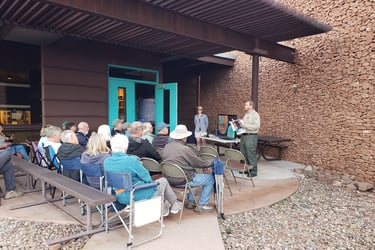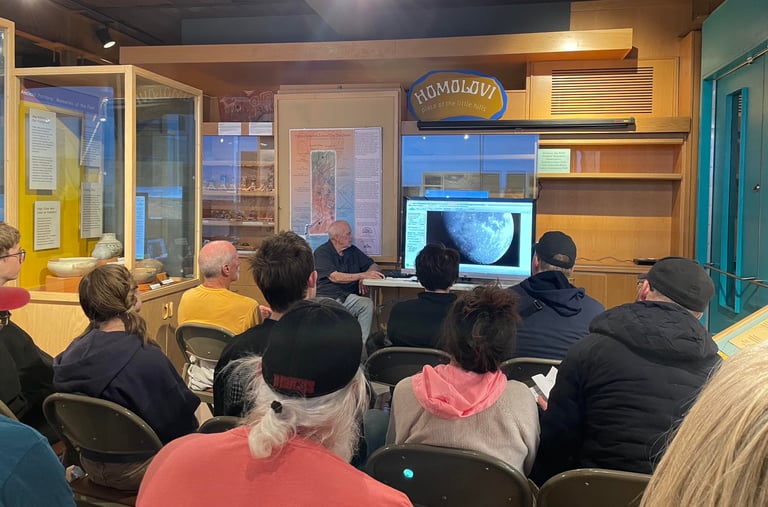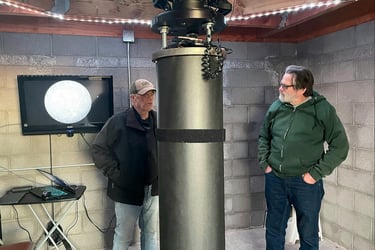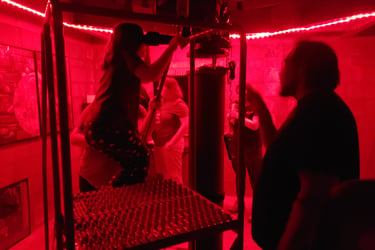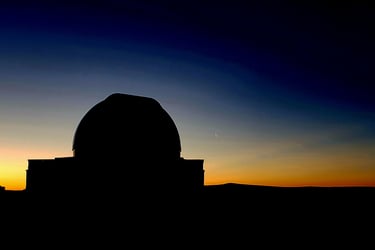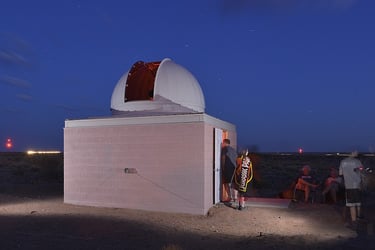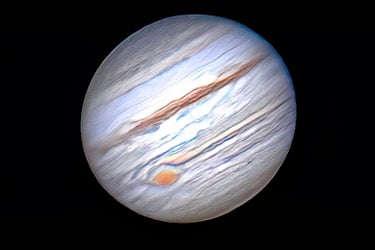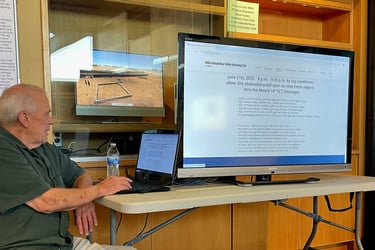Monthly Astro Calendar
All times are MST from Winslow AZ
February 2026
02-01, Full Moon, Snow Moon
02-09, Last Quarter Moon
02-17, New Moon
02-19, Mercury at greatest eastern elongation at sunset, 18+ degrees
02-24, First Quarter Moon
Notice
The Winslow Homolovi Observatory is closed for maintenance December - March and will reopen with our monthly public presentations & observing sessions the 2nd Saturday April thru November. There may be deviations from this schedule, so check back for any updates.
2026 Lunar 'X' and 'V' observations will be challenging with only a few months occurring in the afternoon MST daylight.
March 2026
03-03, Full Moon, Worm Moon, Total Lunar Eclipse, 1:44 a.m.-7:23 a.m.
03-11, Last Quarter Moon
03-18, New Moon
03-20, Vernal Equinox, 7:45 a.m.
03-25, First Quarter Moon
